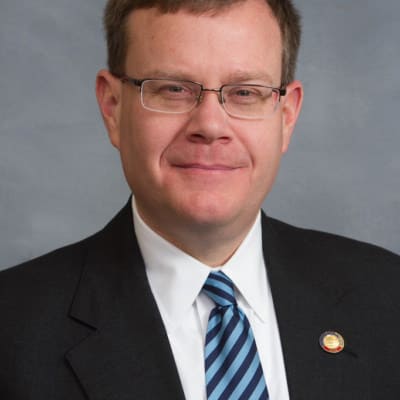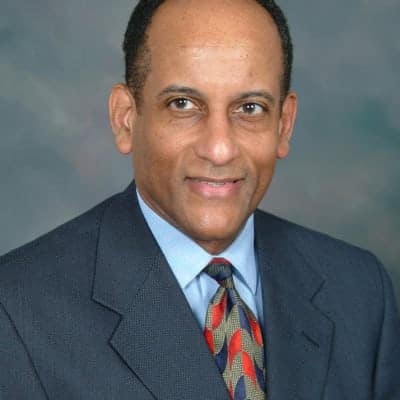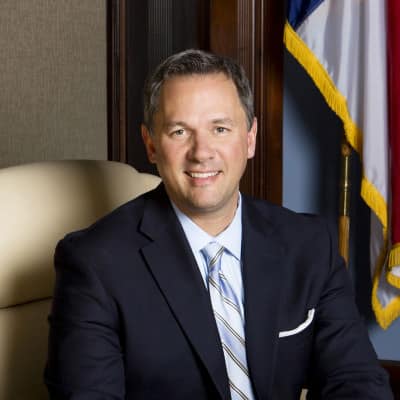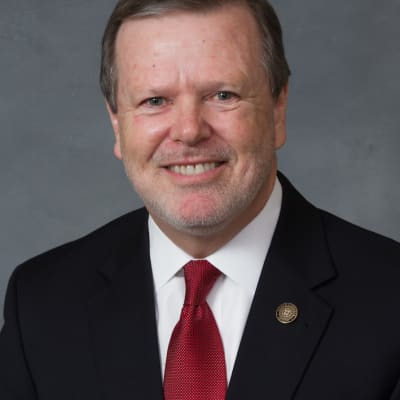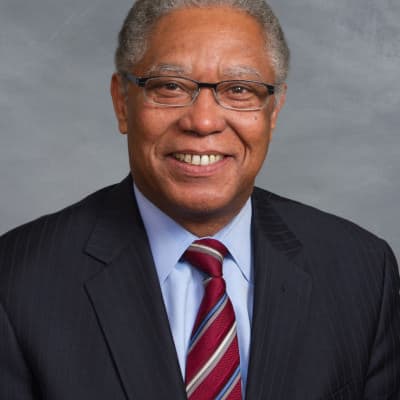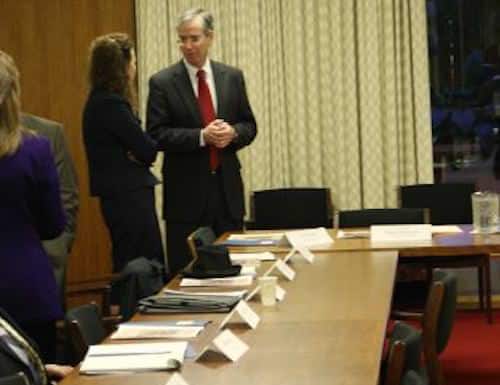

Much of my career has been spent trying to make sure people across the state are comfortable and confident walking into the legislature, interacting with the legislators, and participating in state government — it is your government after all. Here is what you need to know to be a citizen advocate.
The basics
Each session of the General Assembly in North Carolina convenes for two years — often referred to as a biennium. Our “long” session started on January 14, 2015. This is when bills are introduced and a two-year budget is adopted. Typically the long session lasts until July or so. The “short” session will convene in May 2016. Bills that have passed one house, recommendations from a study commission, or issues related to the budget are in play during the short session.
There are 120 members in the House of Representatives and 50 members in the Senate. All of the legislators in both houses serve two year terms. There are no term limits in North Carolina. The legislators that are elected to the General Assembly serve part-time, and often have other jobs back home. During session, they typically meet on Monday evenings, Tuesdays, Wednesdays, and Thursdays.
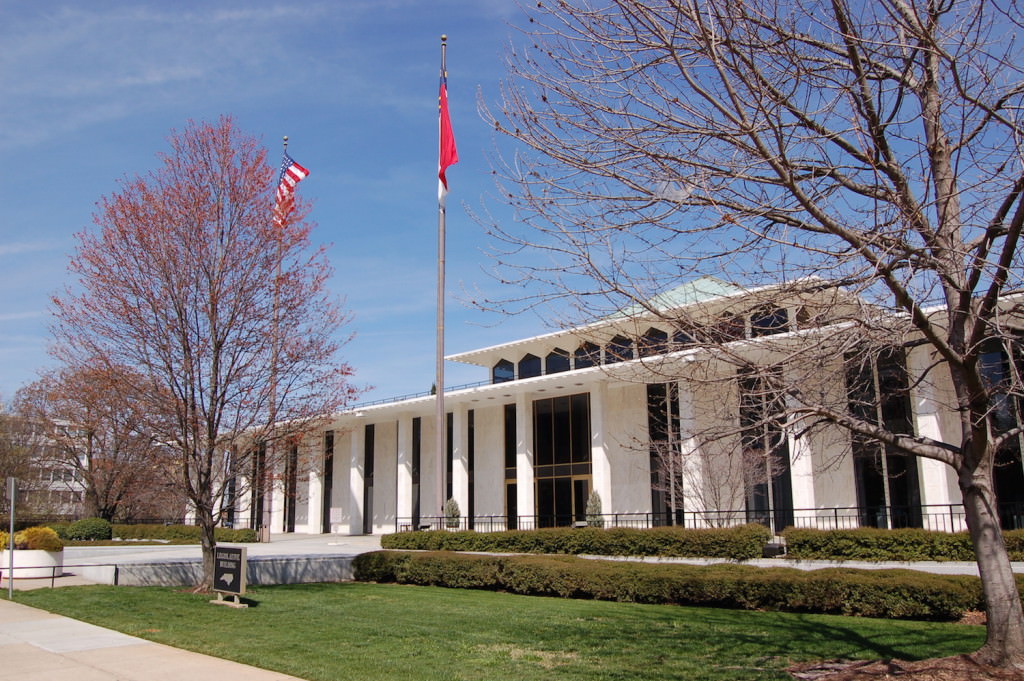

This is the legislative building. Both chambers — the House and the Senate — are in this building. It is located at 16 West Jones Street in Raleigh. Rooms in this building have four digits, like 1226.


This is the legislative office building, which has many of the offices for the legislators as well as larger committee rooms. It is located across the street from the Legislative Building at 300 North Salisbury Street. There is a bridge over Lane Street that allows people to go from one building to the other easily. Rooms in the legislative office building have three digits, like 544.
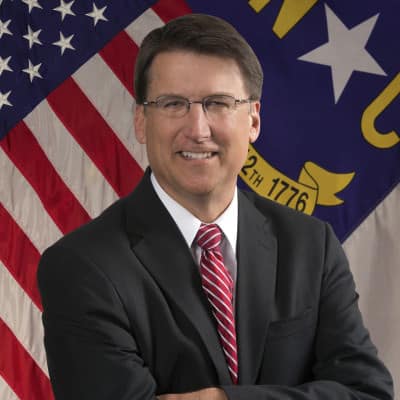


Republicans control all three branches of government for the first time since 1898. Pat McCrory from Charlotte is the Governor. Republicans hold a veto-proof majority in both houses of the legislature. And Republicans have a majority on the state supreme court.
The House of Representatives
In the House of Representatives, there are 74 Republicans, 45 Democrats, and one unaffiliated representative.
There are 16 new members in the House, 26 women, 23 African Americans, and 1 Native American.
The Speaker of the House is Tim Moore of Kings Mountain. The leader of the minority party is Representative Larry Hall.
In the House, there is an appropriations subcommittee on education and a committee on K-12 education. EdNC has leadership profiles on each of the members of these House committees, and if you click on their NCGA profile, you can track each member’s bills, votes, and other committees.
The House principal clerk provides lots of information about the representatives.
The Senate
In the Senate, there are 34 Republicans and 16 Democrats.
There are seven new members in the Senate, 12 women, and 11 African Americans.
Dan Forest is the Lieutenant Governor and President of the Senate. Though not a legislator, the Lieutenant Governor serves as the presiding officer of the Senate and has the power to vote when the members of the Senate are equally divided. The President Pro Tempore of the Senate is Phil Berger from Eden. The leader of the minority party is Senator Dan Blue. Senator Blue served as Speaker of the House from 1991-94.
There is an appropriations subcommittee on education/higher education and a committee on education/higher education. EdNC has leadership profiles on each of the members of these Senate committees, and if you click on their NCGA profile, you can track each member’s bills, votes, and other committees.
The Senate principal clerk provides lots of information about the senators.
Other information
The General Assembly’s website is quite good. EdNC provides a legislation tracker for bills on education with links to the bill history. The bill history page is the best place to check the status of a bill, get the most current draft, and find votes.
The House and Senate calendars are helpful for citizens advocates because they give you notice of when bills will be taken up in committee and on the floor. That doesn’t mean that there aren’t surprises! UNC’s School of Government has a good subscription service called The Daily Bulletin that allows you to monitor legislation.
If you decide to make the trip to Raleigh, here are the building rules, as well as directions, parking, and other building information. The Legislative Building has both a cafeteria and a snack bar (both located in the basement). The cafeteria is open to the public from 11:00 am-2:00 pm, Monday-Friday, year round. The Legislative Building snack bar is open from 7:00 am-3:00 pm, Monday-Friday, year round with extended hours when the Legislature is in session. The Legislative Office Building has a snack bar located on the first floor. The snack bar is open to the public from 7:00 am-3:00 pm, Monday-Friday, year round. Don’t miss the okra.
If you can’t come to Raleigh, you can listen in remotely. Here is a link to audio broadcasts so you can listen in on the House and Senate chambers as well as important committee rooms. You can also follow activity in the chambers using the dashboard.
Here is a link to the bill deadlines for the House and the Senate. Bills have to be filed by these deadlines to be eligible for consideration. Note that the crossover deadline in both chambers is May 7. This means that a bill must have been passed by the chamber in which it was introduced by May 7 to be eligible for further consideration in the biennium.
This very complicated chart shows you how a bill becomes law in North Carolina. Note that often the ideas for bills starts with you, the concerned citizen.
The Governor of North Carolina was the last governor in the country to receive veto power in 1996. In the 2011-12 session, Governor Bev Perdue vetoed 19 bills, 11 of which were overridden. With Republicans controlling the executive and legislative branches of government, veto politics are not quite as important. In the 2013-14 session, Governor McCrory vetoed 3 bills, 2 of which were overridden.
Conclusion
My colleague Ran Coble taught me that to be an effective citizen advocate, you need to first ask yourself what it is that you want out of the legislature:
- Is it money?
- Is it a change in law? or
- Is it that you want to stop something somebody else is proposing?
If you want money, you have to have Republican support because they’re the majority party and in control of the budget.
If it’s a change in law, it’s best for the short term to have a lead Republican sponsor. But for a variety of reasons, including longer term support for an issue from both sides of the aisle, you might want to seek bipartisan sponsorship and support.
If what you want is to stop something, you may not need a legislative majority, because so much of the legislative committee process is by consensus, and consecutive, well-placed objections by a few legislators, or a suggestion from a legislator friendly to you saying “we need to study this some more” may postpone action on the bill.
And if you want to stop something, but can’t stop it in the legislature, don’t forget that the courts are there to review legislation.
The next question to help you think about being an effective advocate is to ask whether your issue is partisan (one or both parties are staked out on), a nonpartisan issue, or an issue where those for and against it divide not along party lines but some other dividing line. For example, some issues in the legislature are not partisan, but instead they are rural vs. urban. Issues can also break down along religious, cultural, or gender lines.
The point is you’ve got to construct a majority in support of what you want, but the majority may not always be solely along political party lines. That search for common ground in the legislature is an interesting one.
Stay tuned for EdAdvocacy 201 next week with tips on being an effective advocate. EdNC would love to know about your successes as a citizen advocate this session. Let us know about your good work for the students and state of North Carolina. And if you have tips for navigating the legislature, please share them in the comments.


